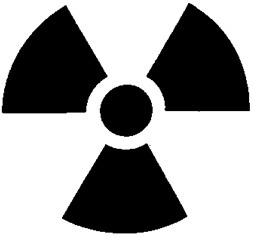by
Brendon Nafziger, DOTmed News Associate Editor | November 29, 2011
The more patients know about imaging modalities the more willing they are to undergo a scan, according to an industry survey gauging patients' worries over medical radiation.
However, the study also found widespread confusion over what technologies actually emit ionizing radiation. More than half of all respondents believed MRI, and nearly one-fifth believed ultrasound, expose patients to radiation, according to the survey, presented Monday morning at the Radiological Society of North America's 2011 annual meeting in Chicago.
In the telephone survey, conducted by Braun Research Inc. on behalf of Siemens Healthcare, callers posed a series of hypothetical scenarios involving medical imaging to patients.



Ad Statistics
Times Displayed: 60756
Times Visited: 1946 Ampronix, a Top Master Distributor for Sony Medical, provides Sales, Service & Exchanges for Sony Surgical Displays, Printers, & More. Rely on Us for Expert Support Tailored to Your Needs. Email info@ampronix.com or Call 949-273-8000 for Premier Pricing.
Dr. Kevin Baskin, with University of Pittsburgh Medical Center, called the lack of knowledge by patients of imaging's radiation risks a "public health issue."
"This should almost be part of their civic education, that X-rays are generated in plain films and CTs, and catheterization procedures and other interventional procedures..and not in other modalities, like ultrasound and MRI," he said on a panel discussion Monday organized by the Siemens Radiation Reduction Alliance, or SIERRA. "These aren't vendor specific issues...these are broad general knowledge based issues that the public should be aware of in order to exercise due caution."
In the telephone survey, respondents were given one of five hypothetical scenarios, such as whether they would agree to have their child get an X-ray after a wrist injury, or whether an elderly relative admitted to the emergency room with chest pain should get a nuclear medicine or chest CT scan.
The relationship between a patient's familiarity with a technology and their willingness to undergo a procedure was strong: for instance, virtually all respondents knew what an X-ray was, and 88 percent said they would go ahead with a scan in scenarios involving the modality. However, only 39 percent of respondents knew what a nuclear heart scan was, and less than a third of respondents would go ahead with that technology.
Don't know much about radiation biology
While 41 percent of respondents recognized that radiation was a risk associated with imaging tests, their understanding of that risk was rather confused, according to the study.
Although 9 out of 10 respondents correctly noted that X-rays involve ionizing radiation, only 68 percent of respondents recognized that CT scans did. Perhaps more troubling, 60 percent of respondents thought MRIs used ionizing radiation, and 23 percent thought ultrasound did.

